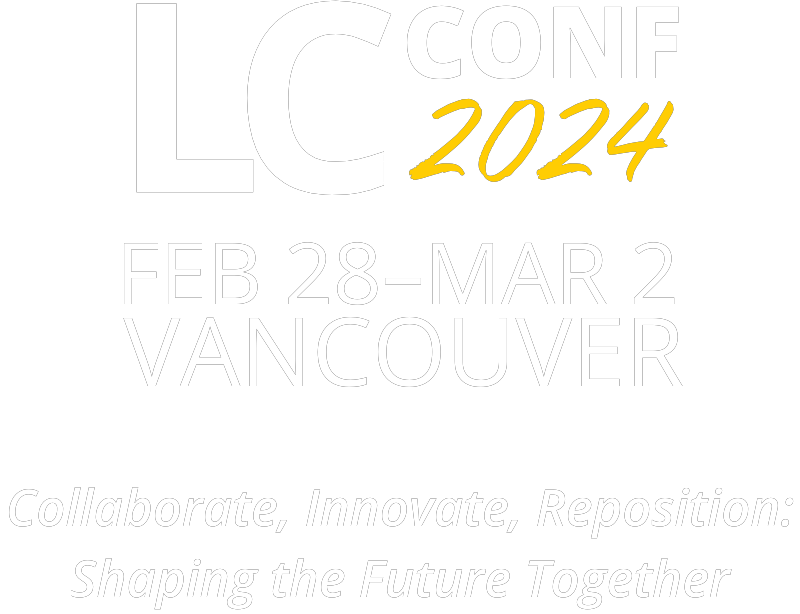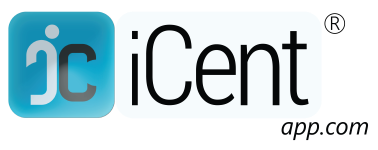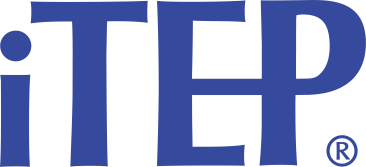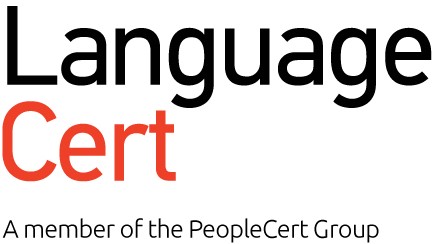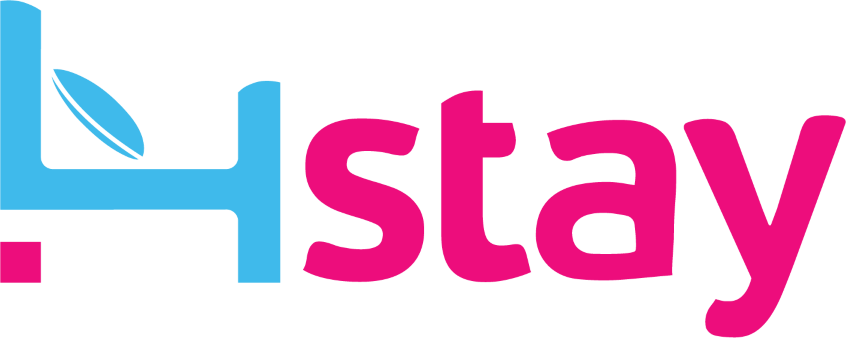By continuing to use our site, you consent to the processing of cookies, user data (location information, type and version of the OS, the type and version of the browser, the type of device and the resolution of its screen, the source of where the user came from, from which site or for what advertisement, language OS and Browser, which pages are opened and to which buttons the user presses, ip-address) for the purpose of site functioning, retargeting and statistical surveys and reviews.
Conference Sessions
Browse the workshops, presentations and sessions offered at the Languages Canada 17th Annual Conference.
ACADEMIC LEADERSHIP AND PROGRAM INNOVATION
Assessing the Impact: An Analysis of Student Outcomes in Public Sector English for Academic Purposes (EAP) Programs – an Update on Current Research
Danielle Freitas
Associate Dean, English Language Institute
Fanshawe College
Julian Inglis
Associate Director, ESL
Brock University
Dr. Julie Peters
Vice President Research
Academica Group
Languages Canada’s Public Sector Interest Group, in collaboration with Academica Group, is excited to present on a recently launched research initiative aimed at quantifying the impact of English for Academic Purposes (EAP) programs within Canadian public sector universities and colleges on international students’ success. This project, scheduled to be launched in 2024, seeks to shed light on the broader impact of EAP/ESL programs on students as they navigate through degree or diploma programs. A range of metrics will be considered, including graduation and retention rates, GPA comparisons and other qualitative and quantitative data. This presentation will provide insights into the potential outcomes of the research and how institutions might leverage the findings to strengthen their academic support structures. It will also be an opportunity for institutions interested in contributing to the project to understand how they might become involved.
Best Practices in Setting Score Requirements for Academic Language Proficiency
Spiros Papageorgiou (Lead Presenter)
Principal Measurement Scientist, Research Division
Educational Testing Service (ETS)
Lindsay Brooks (Panelist)
Academic Director
English Language Program, University of Toronto School of Continuing Studies
Danielle Freitas (Panelist)
Associate Dean
Fanshawe College English Language Institute
Charles Voth (Panelist)
Associate Dean
Niagara College School of English Language Studies
Matthew Stiegemeyer (Moderator)
Senior Director, Strategic Partnerships and Client Relations, ETS Canada TOEFL Program
Educational Testing Service (ETS)
For international students in higher education, proficiency in English is crucial for academic success. Language test scores play a pivotal role in critical decisions, ranging from admission into degree programs to placement in language support classes. These score-based decisions not only affect the students but also have broader implications for educational institutions. The determination of a minimum score, often referred to as the “cut score,” is essential in this process. This session will explore the multifaceted considerations necessary for setting appropriate and effective score requirements for English language assessments. The panel, featuring representatives from Canadian universities and colleges and a Principal Measurement Scientist from ETS will offer insightful perspectives into the strategies their respective institutions employ to navigate the complexities and duties tied to language proficiency within higher education.
ChatGPT in the Classroom: Students' Ranking of Argumentative Papers Using ChatGPT in the Writing Process
Julie Lee
UAP (University Access Program) and Communications instructor
University Canada West
This presentation will discuss the results of an in-class study which investigated ChatGPT's role in academic essay composition. Students were divided into 4 groups with various uses of ChatGPT to complete an argumentative essay task: the control group using no ChatGPT, the ChatGPT Pre-Writing group, the ChatGPT Post-Writing group and the All-ChatGPT Group. After essay completion, participants ranked the essays based on argumentative quality and content. This structured approach aimed to discern the impacts of ChatGPT at various stages, offering insights into its efficacy in academic writing and discouraging utilization of ChatGPT for academic cheating.
Current Trends in International Language Programs for Juniors: A Dynamic and Evolving Landscape
Melanie Alter
Director of Junior Programs and Groups, Canada
ILSC Education Group
Nadine Baladi
Senior Vice President, Canada
Oxford International Education Group
This presentation will explore post-pandemic market trends in junior programs with a focus on accommodation preferences, nationality mixes, English language proficiency, and curriculum interests. Although the nationality mix in juniors programs remains diverse, there is a significant increase in students from certain international markets. English language proficiency upon entry to junior programs is higher than in the past, reflecting more advanced English learning in schools and an expectation of a more challenging and dynamic language program from international language program providers. There is also growing interest in interdisciplinary curriculum, combining language studies with other subjects that students are interested in. Overall, these trends suggest a dynamic and evolving landscape for junior programs with an emphasis on diversified learning experiences.
EAP Teachers' Assessment Literacy: Raising Awareness and Guiding Development in Assessment Practices
Dr. Fatma Ismail Mohamed
Assistant Professor and Academic Manager, English Language Centre
University of Saskatchewan
This session will share the outcome of an exploratory study conducted in an English preparatory program to understand, re-conceptualize, and possibly develop Teachers’/Assessors’ Assessment Literacy (TAL/AAL). It has been observed that the evaluation practices adopted in the described context depend mainly on tests and that the adopted Assessment Practices (APs) therefore do not fulfil one primary purpose of assessment, which is supporting learning. Exploring TAL provided an understanding of teachers’ assessment awareness and whether or not their APs was informed by solid assessment knowledge. The presentation highlights APs that can guide assessment improvement and development in similar contexts.
Globally Networked Learning: Internationalization at Home in English Language Classes
Francesca Boschetti
Associate Director
York University English Language Institute
At a time when student mobility had drastically changed during the COVID-19 pandemic, language programs found a way to continue to create and enhance opportunities for our students to experience "internationalization at home" initiatives. Through a collaboration with York International, York University English Language Institute (YUELI) launched a Globally Networked Learning project – a virtual exchange between English for Academic Purposes students at YUELI and English for Hotel Administration students at Pontificia Universidad Católica Madre y Maestra in the Dominican Republic. Hoping to inspire colleagues in other institutions who may be interested in internationalization of the curriculum in English language classes through a multicultural virtual exchange, this session will share the best practices, learning outcomes, tools and strategies, and challenges encountered from this virtual exchange experience, including how YUELI identified a university partner, designed programming, collaborated with instructors, and engaged different cohorts of students.
Academic Stream Keynote Presentation
Helping Students Become Successful International Communicators
Chia Suan Chong
Author, communication skills trainer and teacher trainer
National Geographic Learning
Participants in this session will learn about the skills students need to communicate successfully with people who are different from themselves, and the ways we can prepare them for the increasingly international environments that they will need to thrive in when they leave the classroom. Chia will use storytelling, reflection, and discussion activities to help instructors and administrators examine key global competencies.
The International, Sustainable, Bilingual Education Model at Universidad Tecnológica El Retoño
Mtra. Dulce Liliana Chávez García
Academic Director
Universidad Tecnológica El Retoño
Lic. Natalia Covarrubias Olivares
International Affairs Coordinator
Universidad Tecnológica El Retoño
Learner Identity: Helping Students Find their Voice in English
Chia Suan Chong
Author, communication skills trainer and teacher trainer
National Geographic Learning
For many students, English is a tool for international communication. Students will need to mediate interactions with people from different cultural backgrounds while accommodating, adapting, and accurately interpreting other people, all in a second language. But how much ownership do they feel of English? How confident do they feel about speaking up in a group setting? Are they able to express their identity in English? This talk explores the importance of helping students develop their relationship with English, and considers the strategies and the practical activities we can use to help students make English their own.
Learning Journeys: English Language Teachers and the Calls to Action
Simone Hengen
PhD Candidate
University of Regina
This presentation describes preliminary findings from a doctoral study exploring how English for Academic Purposes (EAP) instructors are responding to the Truth and Reconciliation Calls to Action. EAP Instructors have an important role in implementing the Calls to Action for English language learners, since their classrooms are often the first point of contact international student have with the culture and values of their university and Canada (Sterzuk and Hengen, 2019;Walsh Marr, 2019). Using participatory action research methodologies (Fine and Torres, 2021), the researcher and each participant co-designed a meaningful learning event and discussed its impact. Their experiences will be of interest to English language educators and administrators.
Practical Applications of AI in ESL Classrooms
Ali Noori
Director
ILSC Education Group and Fanshawe College
Mardy Arenas
Director of Operations
ILSC Education Group, Vancouver
Livia Wolffenbuttel
Academic Manager
ILSC Education Group, Vancouver
Unless you have been living under a rock for the last couple of years, you have definitely heard about Artificial Intelligence (AI) and its massive impact on everything we do. While many compare the results of AI emergence to the impact of the Internet, the wide use of AI is being increasingly compared to the even more impactful invention of the wheel, by many others. The use of AI in education is often shrouded in a combination of mythical and sci-fi fearmongering and perplexed intimidation and insecurity. While it is impossible to cover the full impact of AI on different facets of the ELT industry in 45 minutes to an hour, the purpose of this talk is to demystify the use of AI in ESL classrooms by enumerating some of its practical applications in the context of ESL learning/teaching and explore its empowering potential for both learners and educators.
The Promise and Precarity of Critical Pedagogy in English for Academic Purposes
Jennifer Walsh Marr
Academic English Lecturer
University of Toronto OISE and UBC Vantage College
The ongoing push to recruit international students to educational institutions suggests there will be a persistent demand for English for Academic Purposes (EAP) to support multilingual students joining Canadian colleges and universities. This talk will revisit the principles of EAP and highlight parallels with Freire’s transformational Critical Pedagogy, namely decoding, contextualization, praxis, and critical thinking. Beyond the parallels, there are also deep divisions between the stated goals of international education, the positioning of EAP in the margins of the academy, and the enactment of critical pedagogy. This presentation explores both promising initiatives and tensions in the enactment of critical pedagogy in EAP.
Voices of Evolution: The Dynamic Careers of ESL Educators Turned Managers
Ishmael Johnson
Centre Director
Bayswater Calgary
Matilda Vincent
Director of Studies and CELTA Trainer
Bayswater Calgary
Ayse Sezgin
ICCRC Member and International Student Services Manager
Bayswater Calgary
This illuminating panel discussion will trace the collective journey from ESL teachers to diverse leadership roles within language education, moving from the classroom to managerial positions. As seasoned practitioners turned managers, the presenters will share their professional and personal odysseys, highlighting the profound shifts in perspective, relationships, and responsibilities. From altering views of the industry to managing former colleagues, this session will offer valuable insights, tips, and advice for those navigating similar career transitions. Whether you're an aspiring leader or currently on this trajectory, this session will offer a candid conversation on the multifaceted experience of evolving within the ESL landscape.
MANAGEMENT, LEADERSHIP AND SECTOR ISSUES
Beyond Words: The Value of Languages in Soul Bilíngue's Mission for Change
Ariane Noronha
CEO and Founder
Soul Bilingue
Awarded as the Best Small-Size NGO in Brazil by the Best NGOs 2023, Soul Bilíngue, under the innovative leadership of social entrepreneur Ariane Noronha, is revolutionizing language learning for low-income youth. This presentation will delve into the organization's unique approach that integrates gamification into English language education, which not only engages but also rewards the most committed students with scholarships for international studies at global partner institutions. Discover how Ariane Noronha has created a profitable and sustainable model that not only benefits students but also generates revenue and enhances visibility for international partners who support this noble cause. The session will explore the transformative journey of Soul Bilíngue and its impact on thousands of lives.
Environmental Scan of EAP Program Providers at English-Medium Universities Across Canada: Insights for EAP Program Leaders and Academic Managers
Karen Burkett
Director, School of English
Queen's University
Karen Burkett recently conducted an environmental scan of EAP providers at English-medium universities across Canada. This scan started with looking at key international student related data for each university followed by a review of each individual website for their EAP program providers. The objective of the research was to learn more about the context within which these programs operate. Key findings from this environmental scan will be presented and situated within a wider literature review. A clear picture of our sector will emerge that connects to long-standing barriers and points to potential opportunities relevant to decision-makers and leaders who work at university-based EAP programs.
Inclusive Leadership: Strategies to Foster DEI Culture in a Language School
Hannah Pyo
Associate Director, EAP/ESL
Toronto School of Management/The Language Gallery Canada
Helen Chaikovskaya
Academic Manager
The Language Gallery
Building an inclusive culture within the framework of a language school involves intentionally integrating diversity, equity, and inclusive (DEI) principles into all facets of the institution, beginning from administrative practices all the way to curriculum updates. This presentation will discuss key strategies for fostering and nurturing this culture, which in turn will enrich the educational experience for students as well as creating a positive and supportive work environment for faculty and staff.
Trends Shaping the Future of Global English Language Teaching
Sarah Verkinova
Senior Research Manager
BONARD
BONARD – a leader in international education research – have been working with individual ELT associations to diligently improve and align tracking global data across the eight major destinations. In an effort to improve the sector’s profile, they have compiled a new resource – Trends Shaping the Future of Global English Language Teaching – which introduces a reliable overview of the sector and key trends. Through this armchair discussion, BONARD will share details of the key findings of this massive research undertaking, and predictors for the future outlook for Canada’s English language education sector.
Using Digital Resources to Reduce Carbon Footprint
John Friel
Director of Studies
EC Toronto
Jon Chodarcewicz
Head of Operations (Canada)
EC English Language Centres
The presenters will discuss how they have implemented the use of digital formats in their school. This includes the administrative side, such as student document collection, activities promotion, student and teacher files, certificates, sharing of documents, and contracts. The presenters will discuss how their classrooms have largely gone digital, with teachers and students using Teams in the classroom, and will give an overview of the inventive ways teachers share materials via Teams and use this platform to enhance in-class activities. Finally, the session will share how their online LMS has become increasingly phone and tablet friendly, and can be exploited for several different things such as testing, needs analysis, and pre-arrival to-do lists. A comparison of past and current practices will be detailed along with the numerous benefits of becoming more digital.
MARKETING AND STUDENT RECRUITMENT
Global Affairs Canada Update / Meet the Trade Commissioner Service
Oussamah Tamim
Deputy Director, EduCanada Brand and Mission Support, International Education Division
Global Affairs Canada
Anne-Marie Leclerc
Education Trade Commissioner
Global Affairs Canada
Alexander Leon
Education Trade Commissioner
Embassy of Canada to Costa Rica, Honduras and Nicaragua
The Trade Commissioner Service (TCS) is located in over 160 Canadian diplomatic missions and trade offices around the world, as well as in regional offices in Canada. They provide Canadian businesses, NGOs, associations and academic institutions with on-the-ground intelligence, qualified contacts, partnership opportunities and practical advice on foreign markets. Join a representative from the International Education team at Global Affairs Canada (GAC) and Canadian Trade Commissioners for Education in Costa Rica and in the Vancouver Regional Office for a look at upcoming EduCanada-supported events, Expo 2025 Osaka, and market insights from Costa Rica.
LC members are also invited to book one-on-one meetings with Alexander Leon, Education Trade Commissioner at the Embassy of Canada to Costa Rica, Honduras and Nicaragua. 30-minute timeslots are available for booking here.
Navigating the Future of Recruitment: Insights from the 2023 ICEF Agent Voice & IRCC Data
Chris Paredes
Business Development Manager
ICEF
Monèle Schrot
Director of French Language Programs
ICEF
Launched in 2020, the ICEF Agent Voice survey delivers detailed feedback from agents, identifying the latest trends, opportunities, challenges, and threats affecting the international education industry. It follows the renowned ICEF Agent Barometer, which ran for 15 years. The survey offers unparalleled frequency, reach, and attention to detail – and it provides fresh insight into how agents continue to adapt to the latest global issues and challenges. Each edition of the ICEF Agent Voice features questions focused on a range of categories, including day-to-day operations, recruitment projections, destination trends, student decision factors, and other key areas. This presentation will also highlight the most recently available IRCC data on student numbers by sector and province to shed light on key markets.
Putting Tech to Work for Language Schools: Engage and Enroll More Students at their Critical Stages of Decision-making
Scott Cross
Regional Manager of North America
Higher Education Marketing
Rania Ghaly
Executive Director
Apex Language and Career College
A prospective student takes a crucial step forward in their enrolment and booking journey when they consider filling out an application to your school. Getting them to and past the application step has never been easy, and this grows increasingly competitive every day. In today’s digital environment, it’s important to take advantage of the technologies available to language schools to make the application step a smooth one for the student as well as an efficient and optimised one in your admissions process. This session will demonstrate how schools can get the most of their Customer Relationship Management system, Online Application Portal, and Quote Builder to make lead nurturing and conversion rates more efficient and make students’ application process smooth and easy. The session will explore what this requires from the administrative side as schools put these online technologies to work, optimize the automations they can achieve, and track performance through reporting.
The Arrival of AI and Online Selling: Student Recruitment in the Digital Era
James Cowan
Director of School Sales
Edvisor
This presentation will explore the profound impact of new technologies on student recruitment with a specific focus on online selling and General AI. We will look at the competing solutions that exist today and how these cutting-edge technologies are reshaping our industry, driving innovation in sales strategies, and redefining agency-educator relationships. From AI solutions that reimagine student and agency counseling to the dynamic world of online selling with e-commerce tools, this session will endeavour to demystify the digital era and show how Language Canada members can embrace these technologies to innovate their commercial operations.
STUDENT EXPERIENCE AND WELFARE
Beyond the ELT Classroom: Preparing Students for University Success
David Emery
Marketing Content Manager for EAP for Canada and the US
Cambridge University Press
For many years, ELT instruction was limited to teaching grammar, vocabulary, reading, writing, listening, and speaking. However, these days, students need life competency skills for success at the university level – from collaborating and thinking critically to understand different types of communication to avoiding plagiarism, citing sources, and using generative AI constructively. Using Cambridge’s Prism series and Life Competency Skills Framework, this presentation will explore ways ELT teachers can support their prospective university students for success beyond the classroom.
Building a Sense of Community Within the School through Good Times and Bad
Mardy Arenas
Director of Operations
ILSC Education Group, Vancouver
Sonia Fantauzzi
Director of Studies
ILSC Education Group, Vancouver
How do we build an awesome sense of community among students, staff, and faculty within an international school environment? How do we ensure that every member of our schools feel like they belong? Of course the goal is to establish an atmosphere that transforms our schools into a home away from home. Through surveys and interviews, ILSC Education Group has identified strategies to create an inclusive cultural space that includes team-building activities and proactive communication. Participants are invite to join in a discussion on community-building methods and delve into the challenges associated with community-building at different times of the year, variances in student demographics, and nuances in employee relations.
Enhancing Education through Collective Insight: Leveraging Negative Feedback for Student Experience Improvement
Martha Delgadillo
Centre Director
EC Vancouver
Elisa Gazzola
Centre Director and Customer Service Lead for North America
EC Montreal
Mardy Arenas
Director of Operations
ILSC Education Group, Vancouver
Explore the transformative potential of collective feedback in education in this session. It will delve into mechanisms for gathering feedback, turning negatives into actionable insights, fostering a culture of continuous improvement, and measuring the impact of changes. Through interactive discussions and case studies, participants will gain practical strategies to reshape their institutions, valuing feedback as a catalyst for positive change. Join us in creating a culture that prioritizes improvement and cultivates an enriched learning environment for all.
Housing and International Students: Navigating the Current Public Dialogue
Nathan Speedie
Director of Strategic Partnerships
4stay
Steven Sinclair
Leader, Public Investment and Advocacy, Planning & Development
City of Calgary
Sunand Sharma
Associate Dean, Student Services
Sheridan College
Melissa Nisbet
Associate Director of Operations and Strategic Engagement
Canadian College of Technology and Business
Nadine Baladi (Moderator)
Senior Vice President, Canada
Oxford International Education Group
This dynamic panel discussion will delve into the challenges and potential solutions surrounding the student housing crisis. Panelists will engage in a thought-provoking conversation on issues of affordability, accessibility, and the impact on local communities, and explore a range of solutions stretching from inter- and intra-sector partnerships, development, diversity in accommodation types, and community initiatives such as mentorship and inclusion.
How English Language Skills Support Student Wellbeing and Success
Dahlia Younan
Senior Account Manager
British Council IELTS
Philip Rylah
Regional Examinations Director, Americas
British Council
The journey of an international student is shaped by their English language proficiency and the confidence they have in their skills inside and outside of the classroom. English proficiency is a major part of their success and wellness. This thought-provoking session will showcase research and tools used in assessing student success and well-being in relation to English language skills. Presenters will evaluate their recent findings and consider how they can inform future decisions. Participants will gain insights from the latest research on the relationship between English language proficiency and student well-being, hear first-hand from higher education professionals on ways to navigate changes in the admissions landscape and the context of student mobility and have the opportunity to reflect how similar research can be applied to their role.
Improving Wellbeing and Engagement: Regaining Connectivity, Certainty, and Control
Christina Furtado
Mental Health and Wellness Specialist, Wellness and Learning Initiatives
guard.me International Insurance
Feeling connected, informed, and in control at work is crucial for employee well-being and engagement. The focus of this session is not on the typical perks like free fruit or discounted gym memberships. Instead, this session will delve into the root causes of mental health issues and what leaders can do to promote a supportive, healthy culture. Participants will learn about the “Triple A” approach to recognizing stress overload and creating new behaviors to incorporate daily self-supporting tools. These wellness strategies can be applied to self-care and work/life balance, as well as with students. Participants in this session will: be able to identify strategies for helping change to be accepted and implemented; recognize the “entryway” to Stress Overload; and create an action plan for work and home to help reduce and manage stress. Join the guard.meCARES team for this important conversation and take the first step towards improving workplace well-being and engagement.
Increasing Student Engagement Through 'Mandatory' Opt-Out Meetings
Steven McWilliams
Educational Developer and Student Advisor
Queen's University School of English
This presentation will share an important project that Queen’s University School of English has embarked upon, which involved transitioning from a passive and reactive academic advising service, to a more proactive model typified by one key policy — one-to-one opt-out meetings for every student with the student advisor. This session will share details of the methodology used, student feedback from before the change and after, and discuss the pros and cons of such a change. Participants will leave this session with a concrete idea of the effectiveness of ‘mandatory’ opt-out meetings, and how to implement it in their respective academic contexts.
Making Star Language Learners
Melanie Goode
Academic Director
Atlantic Canada Language Academy
Our students are the reason we have classrooms and yet so many struggle with much more than just language learning. This presentation aims to help teachers and administrators have a deeper understanding of what it is like to move to a new country and how to help immigrants and refugees adapt to their new environment. Discussion of bridging cultures, intercultural communication and worldview knowledge will help participants gain valuable knowledge and skills along with anecdotes of teacher and student experiences that highlight how we know our audience, understand expectations, and help students adapt to their new reality.
LANGUAGE TESTING
Aligning an International Test of English to Multiple Frameworks/Standards: The Case of the LanguageCert Concordancing Studies Programme
Yiannis Papargyris
Assessment Development Director
LanguageCert
Accurate test score interpretation is crucial as it facilitates a nuanced understanding of an individual's language proficiency, enabling educators, institutions, and other stakeholders to make informed decisions about admission and placement, curriculum design, and academic support. In this presentation, we present the strategic alignment of the LanguageCert Academic Test of English with certain international standards and frameworks (CEFR, IELTS, CLB). We will explore the painstaking process of ensuring that a language assessment meets the criteria set by prominent educational benchmarks and discuss the significance of harmonizing language assessment practices to foster global educational excellence.
Designing and Aligning a New Computer-Based English Language Test for Canada to the CLB
Rose Clesham
Director of Assessment Research and Validity
Pearson
This session will give an overview of the steps that were required to plan, design and set standards for a new computer-based English language test for Canada. It was clearly essential to involve English language experts based in Canada, familiar with language learning, assessment and CLB standards. Presenters will describe the roles of these experts, and the associated methodologies, ranging from groups that considered the appropriateness and fitness of purpose of test items, to panels set up to align the finalized tests to the CLB standards using field test data. Quality and authenticity were key to this initiative.
Implementation of Human-AI Hybrid Tools for Responsible Content Development
Michael Holaday
Vice President, Revenue, Language Proficiency and Prior Learning Assessments
Prometric
Jennifer Flasko
Senior Content Development Lead, Language Acquisition Portfolio
Prometric
Generative AI presents an opportunity to increase the efficiency of content development for language testing. However, it is crucial to understand the benefits and limitations of AI and continue to engage the expertise of test developers and item writers as key contributors. Licensed and customized human-AI hybrid item writing tools bring together the efficiency of generative AI and the expertise of human item writers and test developers in a collaborative process. In line with the conference theme "Collaborate, Innovate, Reposition: Shaping the Future Together,” this presentation explores the pathway to ethical and responsible integration of cutting-edge generative AI tools into content development for high-stakes language assessment.
Peer-Reviewed Validity and 7 Things to Ask All Test Providers
Alyson Murray
Senior Strategic Engagement Manager, Canada
Duolingo English Test
Maria (Masha) Kostromitina
Assessment Specialist
Duolingo English Test
As standardized testing evolves with the use of technology, including AI, it is critical to continue to assess tests to ensure they are secure, reliable, and valid. The integrity of testing processes is a cornerstone of higher education. As universities increasingly shift towards accepting digital assessments for admission, new questions and challenges around test security and proctoring emerge. Learn the 7 critical questions schools should be asking their testing providers to ensure testing integrity remains cutting-edge and secure. The session will also explore the DET’s latest peer reviewed research to ensure attendees are up to date on the latest findings.
Understanding and How to Set IELTS Scores
Okokon Odiongenyi
Partnerships Director
IDP IELTS
This interactive session will take a look at IELTS scores, provide a deeper understanding of how to interpret them, and offer some helpful guidelines on how to set scores. Attendees will have the opportunity to play the role of an IELTS Examiner and walk through live examples of speaking tests.
Thank you to our 17th Annual Conference supporters!
We would like to acknowledge that this meeting will take place on the traditional, ancestral, and unceded territory of the Coast Salish Peoples, including the territories of the xʷməθkwəy̓əm (Musqueam), Skwxwú7mesh (Squamish), and Səl̓ílwətaʔ/Selilwitulh (Tsleil-Waututh) Nations. We express our gratitude to the traditional caretakers of these lands and waters and respect the graciousness of their welcome. We acknowledge that we are here as uninvited guests on their territories.

